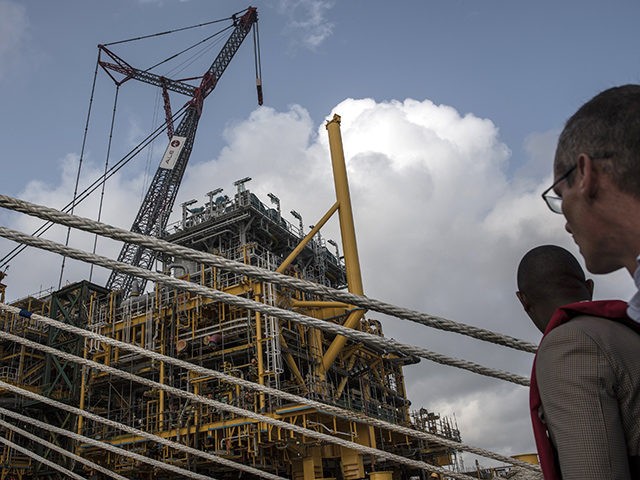Nigeria lost nearly $3 billion in revenue to “oil-related crimes” last year, the United Nations reported Monday, citing figures from the African country.
“Maritime crime and piracy off the coast of West Africa continued to pose a threat to peace, security, and development in the region,” the U.N. Office for West Africa and the Sahel (UNOWAS) declared, adding, “Oil-related crimes resulted in the loss of nearly 2.8 billion dollars in revenues last year in Nigeria, according to government figures.”
“Between January 1 and November 23, there were 82 reported incidents of maritime crime and piracy in the Gulf of Guinea,” the report added, according to Premium Times.
Boko Haram, a Nigeria-based jihadi organization linked to the Islamic State (ISIS/ISIL), may be generating funds from crude oil thefts, some U.S. officials have warned.
The U.N. report, which mainly covered activities during the second half of 2018, also acknowledged that there was an increase in drug trafficking throughout West Africa and the Sahel.
According to various assessments, the Sahel is home to al-Qaeda’s wealthiest branch, which generates tens of millions from drug trafficking. Al-Qaeda in the Islamic Maghreb (AQIM), as the group is known, has been linked to Latin American drug cartels that move illicit narcotics into Europe and Asia through Africa.
“In Benin, the Gambia, and Nigeria, more than 50 kilograms of cocaine were seized between July and October by joint airport interdiction task forces During the same period, joint airport interdiction task forces seized more than six kilograms of methamphetamines, eight kilograms of heroin (double the amount in the first half of 2018) and 2.6 tonnes of cannabis,” the U.N. found.
“Drug production across the region was also reportedly on the rise, with more than 100 kilograms of ephedrine and phenacetin seized by competent authorities,” it added.
The U.N. also noted that the conflict between predominantly Christian farmers and Muslim Fulani herders in Nigeria has resulted in the “loss of lives, destruction of livelihoods and property, population displacements and human rights violations and abuses,” Premium Times reported.
Echoing other assessments, Benjamin Argak Kwashi, a Nigerian bishop, told Breitbart News last month that the Fulani herdsmen present the most significant terrorist threat to Christians in the African country.
Citing the U.N., Premium Times pointed out, this “spike in conflict between farmers and herders was closely linked with demographic pressures, desertification, and the attendant loss of grazing reserves and transhumance routes, which had been exacerbated by climate change.”

COMMENTS
Please let us know if you're having issues with commenting.